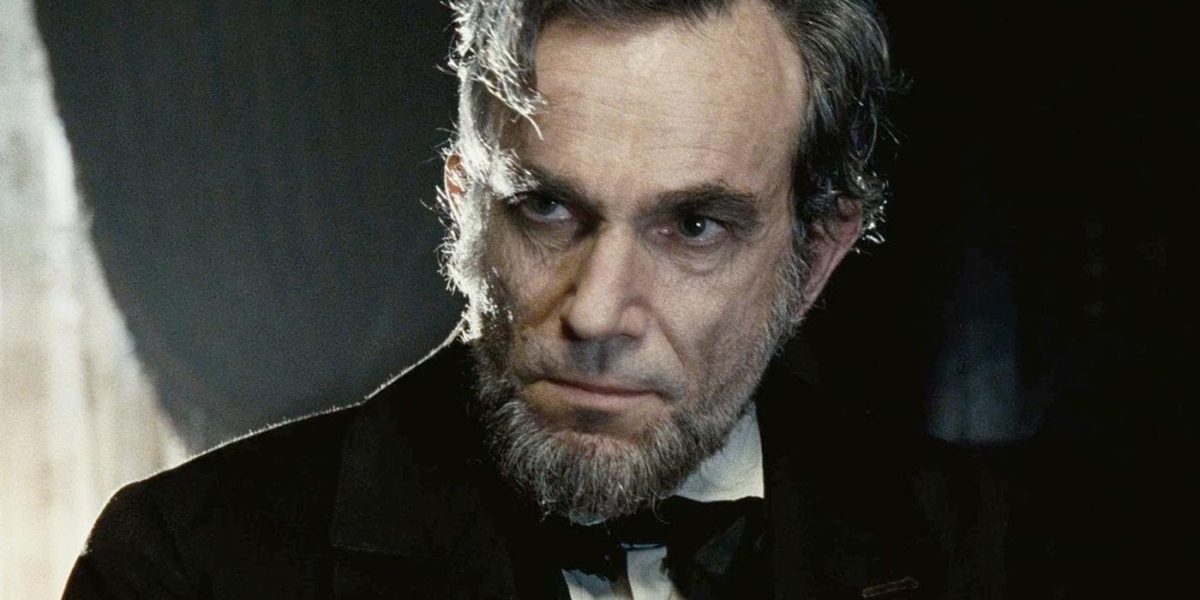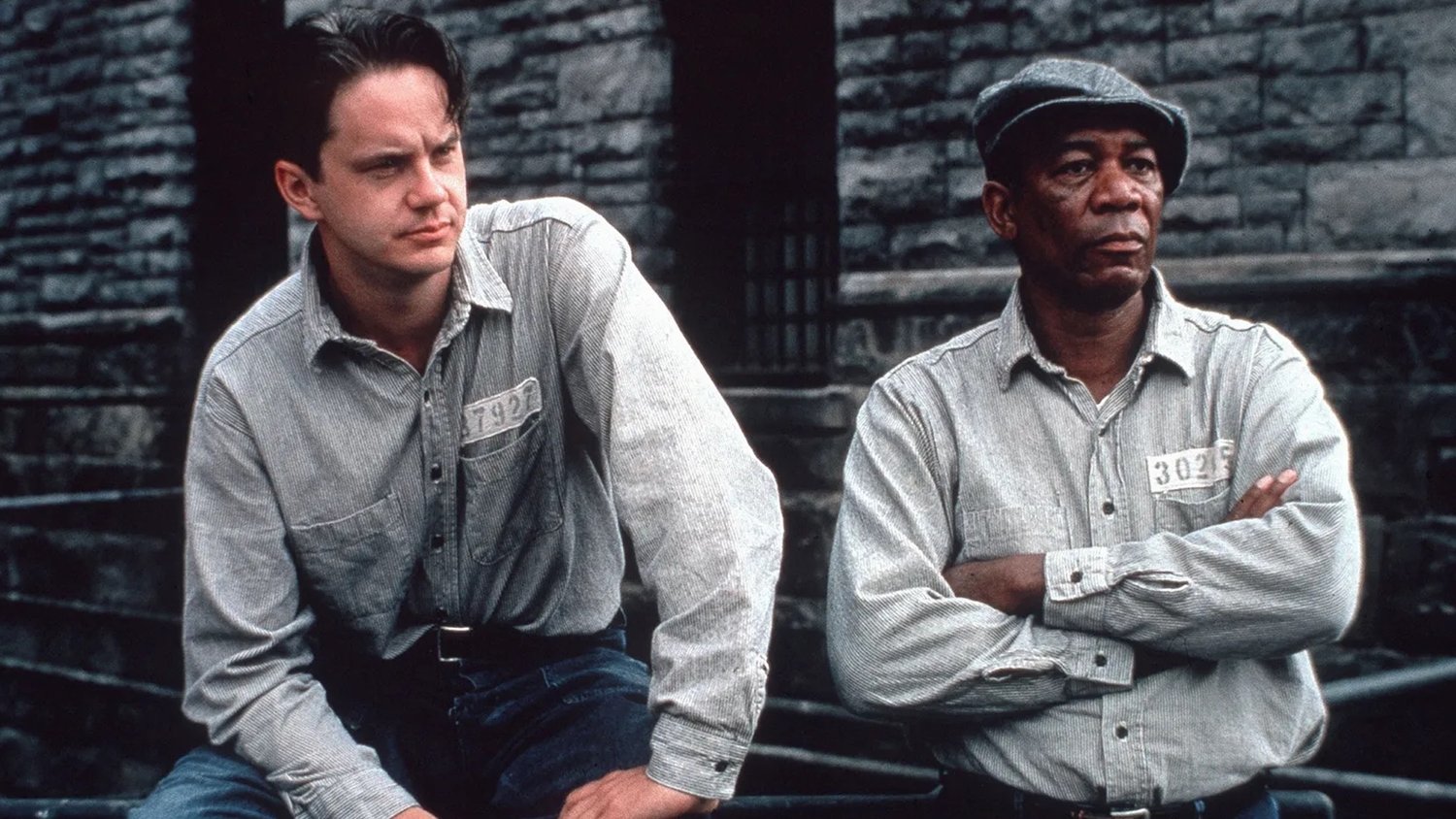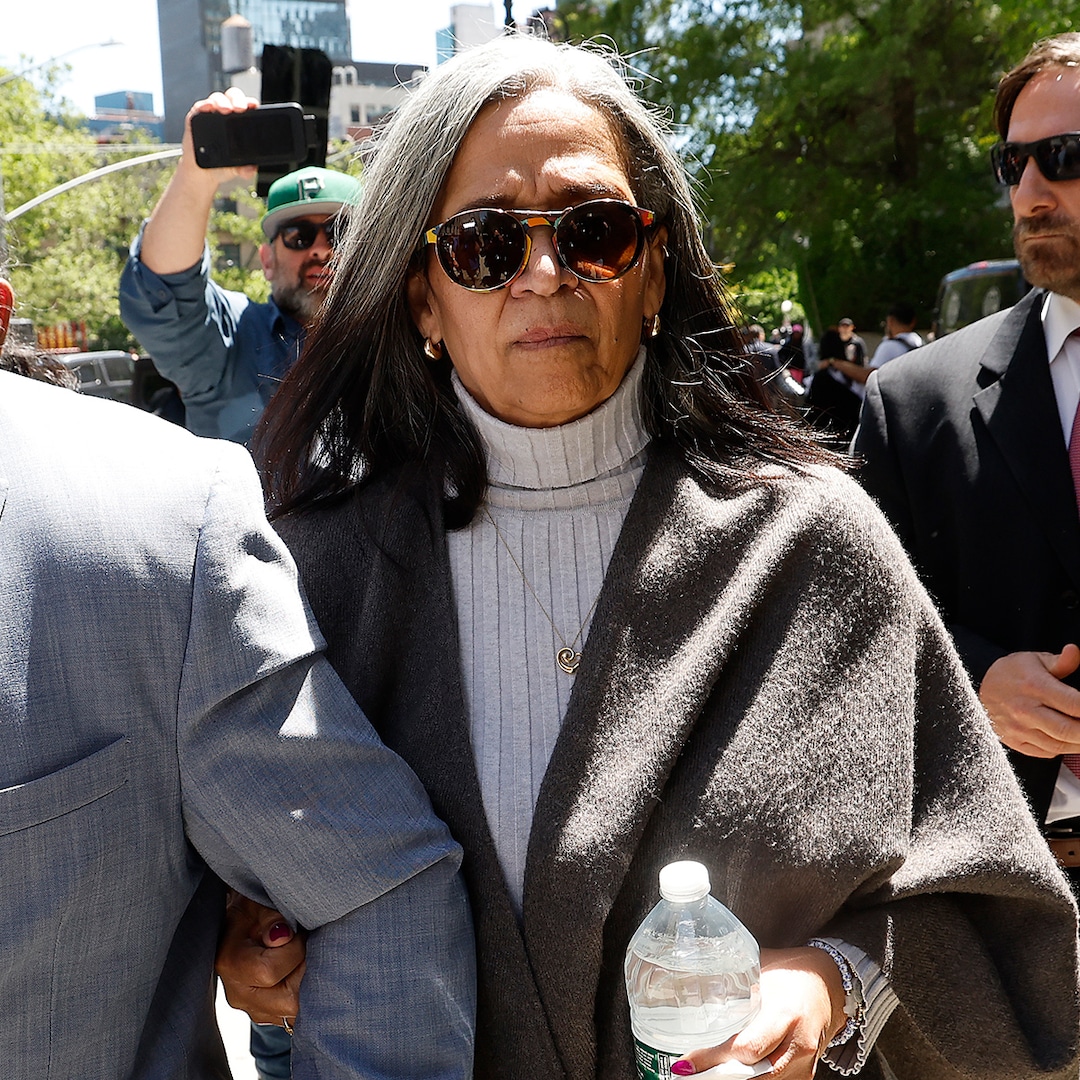
Steven Spielberg’s ‘Lincoln’ Makes Apple TV+’s ‘Manhunt’ Even Better
Apr 1, 2024
The Big Picture
Watching
Lincoln
enriches the experience of
Manhunt
, which touches on Reconstruction and the aftermath of Lincoln’s death not addressed in the film.
Daniel Day-Lewis’ portrayal of the president in
Lincoln
personifies him as a unifying leader holding the nation together, compared to
Manhunt
‘s theme of political havoc.
Manhunt
explores post-Civil War challenges and beliefs that
Lincoln
was unable to address.
Apple TV+’s newest historical drama, Manhunt, is the perfect pairing companion with the legendary biographical drama, Lincoln. Manhunt tells the story of the immediate aftermath of the assassination of Abraham Lincoln (Hamish Linklater), when the delayed capture of his killer, John Wilkes Booth (Anthony Boyle), wreaked political havoc. Lincoln, directed by Steven Spielberg in 2012, tells the story of America’s greatest president while he was still alive. Do you have to have seen Lincoln to understand Manhunt? Not at all, but it does make for an enhanced viewing experience. And, if you were even considering watching the series, you’ll love the movie, which is one of the most absorbing and entertaining historical films of this century.
Lincoln As the Civil War rages on, U.S President Abraham Lincoln struggles with continuing carnage on the battlefield as he fights with many inside his own cabinet on his decision to emancipate the slaves.Release Date November 9, 2012 Runtime 120 Writers Tony Kushner , Doris Kearns Goodwin
Steven Spielberg’s ‘Lincoln’ Is Concerned With the End of the President’s Tenure
The bulk of Manhunt takes place in the immediate aftermath of Lincoln’s death (it’s based on a book titled Manhunt: The 12-Day Chase for Lincoln’s Killer). Lincoln, unsurprisingly, ends with the assassination. It also, somewhat surprisingly for a biopic, takes place over only a short window of time, rather than telling the story of its subject’s life. The last few months of Lincoln’s life saw the end of the Civil War, and, more centrally, the passage of the Thirteenth Amendment, which enshrined the end of slavery in the U.S. Constitution.
In the United States, the passage of a Constitutional amendment requires a two-thirds vote in both the Senate and the House of Representatives. During the Civil War, none of the Southern slave states were represented in Congress. Still, there were just enough conservative, openly racist representatives of the Northern states to block the ratification of an amendment ending slavery. The plot of Lincoln is concerned with the effort to whip up enough votes to pass the amendment, which is orchestrated behind the scenes by the president.
At the Center of ‘Lincoln’ Is Daniel Day-Lewis’ Otherworldly Performance
Image via Walt Disney Studios Motion Pictures
Abraham Lincoln is played by Daniel Day-Lewis, in a performance that won him his third Academy Award for Best Actor. His performance, which is kind of awe-inspiring, is central to the movie. Lincoln portrays the president as a leader who holds things together almost entirely through the strength of his personality, aided by an unmatched rhetorical skill. He is able to unite in one great moral purpose both factions of his party – the conservatives who want an end to the war even if slavery continues, and the Radical Republicans, led by Thaddeus Stevens (Tommy Lee Jones), who refuses to disguise their disgust with slavery even for political ends. Lincoln subscribes to the “great man” theory of history, and while it acknowledges that Lincoln was surrounded by many other talented people, such as Stevens, General Ulysses S. Grant (Jared Harris), and Secretary of State William H. Seward (David Straithairn), it never really suggests that any of these were Lincoln’s equal, or that they could have accomplished much of anything without him.
There’s plenty of debate over whether Lincoln really was this transcendent of a historical figure. But Day-Lewis convinces you that he was. His Lincoln quietly dominates conversations with his warmth and clarity, and yet is never quite a part of them. He’s characterized by a tragic loneliness, largely because no one is quite on his level and he must keep many of his thoughts to himself. Lincoln is a frequent storyteller, and it’s often not quite clear at first how his stories will connect to the current moment. In a tense moment waiting for word on the result of a battle, Lincoln launches into an anecdote about Revolutionary War hero Ethan Allen. His harried Secretary of War (Bruce McGill) calls him out for derailing the conversation with another seemingly unrelated story. It only becomes clear when the telegram comes in announcing the Union’s victory, that Lincoln was simply trying to keep everyone’s spirits up through a difficult moment. He knows what’s best for people, but often alienates them because they don’t know what’s best for themselves.
The word that most seems to define Spielberg’s Lincoln is “loved.” When Sally Field’s Mary Todd Lincoln confronts the morally upright Stevens, she reminds him of Lincoln’s defining quality, his unbelievable popularity: “how the people love my husband… they will never love you the way they love him.” And this love starts with Day-Lewis – who famously stays in character in between takes – and who described having a profound feeling of sadness when his time playing Lincoln had come to an end, because “there’s never been a human being that I loved as much as him.”
‘Manhunt’ Takes Up the Historical Issues ‘Lincoln’ Saves for Later
While it’s not fair to compare Manhunt to Lincoln, watching Lincoln only enriches the experience of watching Manhunt. This is partially because it’s nice to catch up with many of the same personalities, especially Mary Todd Lincoln (Lili Taylor) and Elizabeth Keckley, her friend, a woman born into slavery who became a high-end dressmaker who styled the First Lady and others (Gloria Reuben in the film, Betty Gabriel in the series).
Best, though, is the way Manhunt addresses the questions of Reconstruction (the period that followed the American Civil War) that the film doesn’t reach. One of the film’s best scenes is a confrontation between Lincoln and Stevens in a basement. Stevens lays out his plan for Reconstruction, which includes seizing the property of slave owners and redistributing the wealth to bring formerly enslaved people up to speed in the economy as well as a permanent military occupation of the South to “transform the heritage of traitors.” Lincoln gently chuckles at this and promises that if Stevens works with him on the Thirteenth Amendment, they’ll have time to conflict over these issues later. Meanwhile, as Lincoln confides to Grant, his plans for Reconstruction involve forgiving the South and allowing Confederate leaders to evade punishment.
Manhunt includes a synthesis of these two scenes as a flashback in the third episode. Instead of Stevens or Grant (neither of whom appears in the show, at least so far), the scene features Lincoln and Stanton. Lincoln advocates for letting Confederate leaders flee to Europe. “Let the sheep flee,” says Lincoln (whose words also title the episode). But Stanton pushes back, arguing that those men, though defeated, are not sheep, but wolves.
Related The True Story Behind Apple TV+’s ‘Manhunt’ Apple TV’s latest series revolves around one of the most famous assassinations in history.
‘Manhunt’ Details the Fallout of Lincoln’s Death
Through three episodes, it is Stanton, not Lincoln, who is proved more correct. Manhunt makes time to show the extent that life changed (or didn’t change) for Black people after the Civil War. And it also shows how the evil that informed slavery was kept alive in the hearts of many conspirators who celebrated the death of Lincoln. These people recognized, in the death of Lincoln and the assumption of power by the pathetic Vice President Andrew Johnson (Glenn Morshower), an opportunity to reestablish their power. And Edwin Stanton combats these conspirators in the political realm while tracking Booth in the real world. While Lincoln seems to have more faith in its hero’s vision of forgiveness, Manhunt, which airs through mid-April, has not yet revealed to what degree it shares this belief — which could be a product of the political climates during each project’s production.
Lincoln is available for rent or purchase on Amazon Prime Video in the U.S.
Watch on Prime Video
Publisher: Source link
Cheryl Burke Responded To Speculation About Her "New Face"
“The assumptions are just exhausting as hell.”View Entire Post › Disclaimer: This story is auto-aggregated by a computer program and has not been created or edited by filmibee.Publisher: Source link
May 22, 2025
Summer House Season 9 Reunion Trailer Teases Big Breakup
Paige DeSorbo Says She’s “So Thankful” Lindsay Hubbard is Pregnant While Filming Summer HouseIt sounds like Summer House might have a newly single star among its cast. Lindsay Hubbard teases that she might no longer be dating boyfriend Turner Kufe—with…
May 22, 2025
Michael Che Apologizes To Scarlett Johansson On SNL
Michael Che Apologizes To Scarlett Johansson On SNL Michael Che brought out the Jurassic World Rebirth star during the "Weekend Update" segment to jokingly apologize for his out-of-pocket "roast beef" joke during the final episode of SNL's 50th season. If…
May 21, 2025
Cassie Ventura’s Mom Paid $20K After Threats
Male Escort Says He Could Hear Sean "Diddy" Combs Assaulting CassieWhen Ventura didn’t join Combs right when he called for her on one occasion, Phillip testified May 12 that Combs threw a liquor bottle in her direction, then grabbed her by…
May 21, 2025











